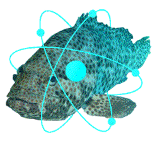RADAM: Radiation Detection and Measurement
The main objective of the project is to familiarize students with the practical aspects of radiation measurement.
The student is able to set up and/or to analyse
- nuclear counting measurements (GM-counting, proportional counters etc.)
- measurements using NaI- ( and LaBr-)Scintillators and HPGe-Detectors for gamma-spectrometry
- basic LSC measurements (he/she gets to know quench effects)
- measurements (without sample preparation) using alpha-detectors
- Neutron activation and neutron detection
He is aware of the importance of a correct treatment of the uncertainties in the data and knows how to apply the recipes given in the GUM-publications for some typical cases
He knows how to determine the counting efficiency for simple geometries and gets first information on simulation tools to determine efficiencies for more complex situations
The student can apply the methods of this laboratory in other disciplines e.g. nuclear chemistry (see offerMARC)
Students , mainly at Master level, Bachelor students only if initial knowledge appropriate
This IC is highly recommended for students who want to participate in the nuclear chemistry course, proposed at the Campus Jülich in the following week, which have little or no experience in nuclear measurements.
The activity is organised for our own students, free places are open for students of CHERNE partners
The IC is mainly focused on experimental activities. Short presentations at the end of the IC will be part of the evaluation
Potential partners should show their interest asap. They will be asked for further suggestions and comments
Students should express their interest by the end of June 2016 and register not later than July, 15th 2016.
Accepted students will obtain a hand-out of the intended experiments and some literature to be prepared
Travel not covered
Accommodation approx. 45€/night in local hotels possible
Apartments for approx. 25€/night (no breakfast) also possible
There is a possibility of installing tents on the Campus at no cost!
One social dinner, welcome and farewell drinks (sponsored by Kursstätte a course provider for radiation protection training)
No Tuition fee
TOTAL COSTS Depend on accommodation and travel
We will try hard to obtain cheap accommodation (last year we had an apartment for less than 25€ a night!)
